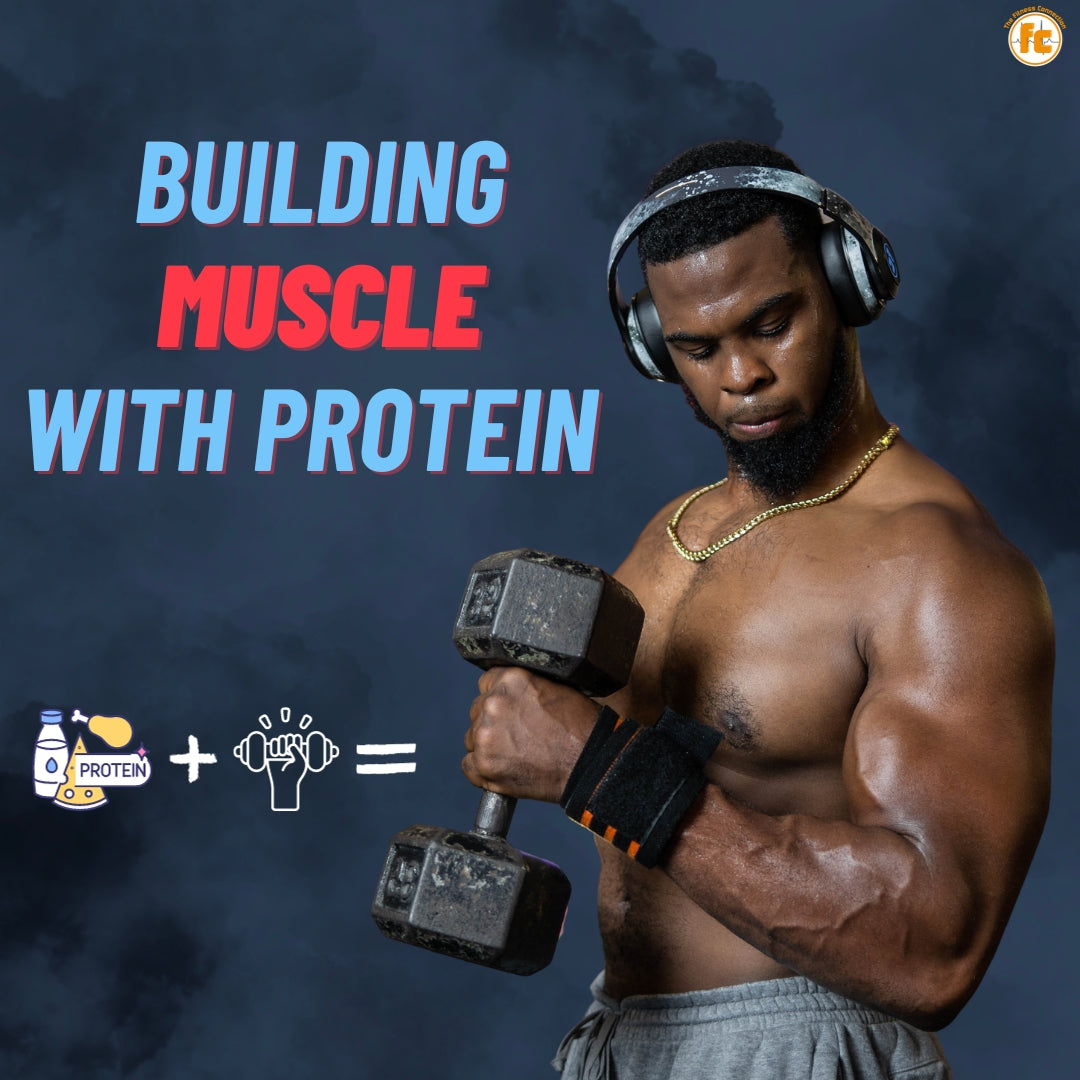Bigger, Stronger Muscles With Protein!

Welcome, in this guide, we will uncover the “secrets” of using protein to achieve those coveted BIGGER muscles. We will learn what protein is and how it works in relation to our body. We will also learn the keys in determining how much and what type of protein is needed to achieve muscle growth and strength. So, let's dive in and discover how to harness the power of protein to take your gains to the next level!
-
Understanding Protein's Role in Muscle Growth:
- To achieve bigger muscles, it's essential to understand how protein works within your body. Proteins are made up of AMINO ACIDS, which are the building blocks necessary for muscle tissue REPAIR & GROWTH. By providing your body with an adequate amount of protein, you ensure that it has the necessary tools to enhance muscle synthesis (production).
-
Determining Your Protein Needs:
- The next step is to determine your protein requirements!
Factors such as your body weight, activity level, and fitness goals all play a role in determining the optimal protein intake. Generally, a range of 0.7-1 gram of protein per pound of body weight is recommended for muscle growth. However, individual needs may vary, so it's crucial to consult a nutritionist or fitness professional to establish a personalised protein plan.
**For help with determining protein needs:
Book your 20-minute virtual CONSULTATION (click me) and find out how The Fitness Connection can support your fitness and wellness goals! We’ll discuss your goals, supplement recommendations and answer any questions you may have and help create an action plan for your success**
-
Choosing the Right Protein Sources:
- Not all protein sources are created equal. While animal-based proteins like lean meats, poultry, fish, and dairy products are excellent choices, plant-based options like legumes, tofu, quinoa, and tempeh also provide valuable protein. Discovering a balance between animal and plant-based protein sources can help diversify your nutrient intake while meeting your muscle-building needs.
Click for:
Plant-Based Protein Options
 Click for:
Click for:
Animal-Based Protein Options

-
Timing Your Protein Intake:
- Optimal protein utilisation involves strategic timing. Consuming protein both before and after your workouts can maximise its benefits.
Taking protein BEFORE workout provides fuel for your muscles, while taking protein AFTER workout aids in muscle repair and recovery.
- Additionally, spreading your protein intake throughout the day, rather than consuming it all in one sitting, can enhance muscle protein synthesis.
-
Supplementing with Protein Powders:
- Protein powders, such as whey, casein, and plant-based options like pea or soy protein, can be convenient and effective additions to your diet. They offer a quick, easily digestible source of protein, especially when consumed post-workout or during periods of increased protein needs. However, it's important to remember that supplements should complement a well-rounded diet.
In summary, HARNESSING the power of protein is essential for achieving bigger, stronger muscles. Understanding the role of protein in muscle growth and determining individual protein needs are the first steps. Choosing the right protein sources, whether animal-based or plant-based, helps diversify nutrient intake. Timing protein intake strategically, especially before and after workouts, enhances muscle fuel and repair. Protein powders, such as whey or plant-based options, can be convenient supplements to meet increased protein needs. Remember, supplements should complement a well-rounded diet and not replace whole food sources. By incorporating these principles, you can unlock the potential of protein and pave your way to impressive muscle gains.



